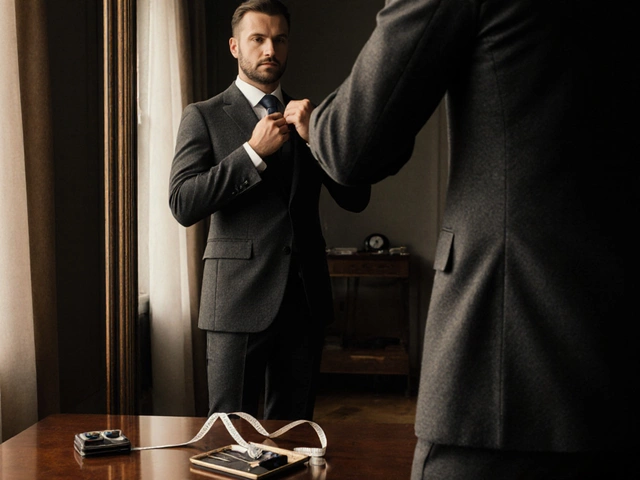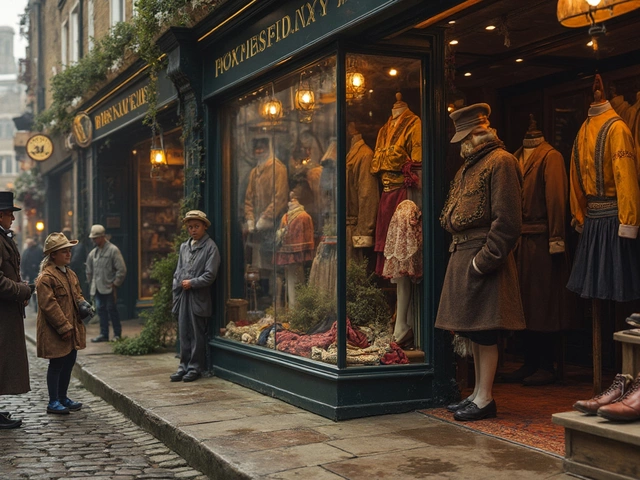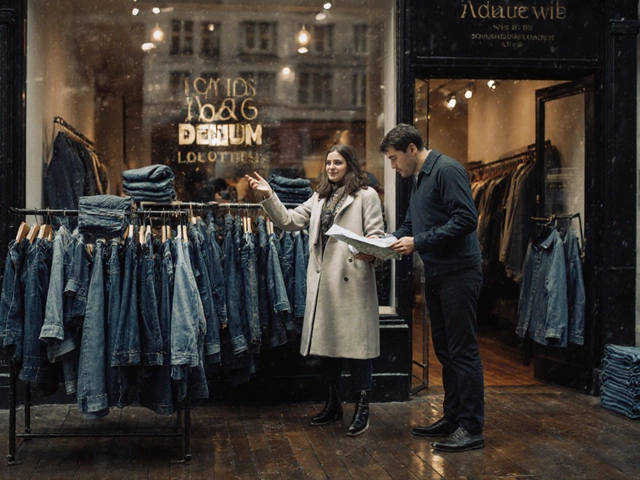Suits – Find Your Perfect Fit & Style
Looking for a suit that feels right, looks sharp, and fits your budget? You’re in the right place. This page breaks down the most common questions about suits, from why a $5,000 suit costs so much to how a bigger guy can pull off a slim‑fit look. Keep reading for practical tips you can use right away.
What Makes a Suit Worth Its Price?
Not all suits are created equal. A $500 suit typically uses a decent wool blend, has decent stitching, and a basic lining. A $5,000 suit, on the other hand, often features hand‑selected fabrics like cashmere or Super 200s wool, hand‑stitched lapels, and a fully canvassed construction that lets the jacket drape naturally.
Key things to check are the fabric weight, the way the lapels are sewn (hand‑stitched is a good sign), and the lining material. Buttons made of horn or mother‑of‑pearl also hint at higher quality. When you know what to look for, you can spend wisely and avoid overpaying for a cheap‑looking garment.
Fit Tips for Every Body Type
Most men think slim‑fit suits are only for skinny guys, but that’s a myth. If you’re on the bigger side, choose a slim‑cut that follows your shoulders and tapers slightly at the waist. Avoid jackets that pinch around the chest—look for a little extra room in the shoulders and let the tailoring do the rest.
Tailors can take a regular off‑the‑rack suit and adjust the waist, sleeves, and trouser break to suit a larger frame. Pair the suit with a crisp shirt and a well‑fitted tie, and you’ll look sharp without feeling squeezed.
Color matters, too. Dark shades like navy or charcoal create a slimming effect, while lighter colors draw attention. If you want to look leaner, stick to subtle patterns—thin pinstripes work better than bold checks.
Choosing the Right Color for the Right Occasion
Blue, navy, and charcoal are the safest bets for business and formal events. If you want to stand out, a deep burgundy or subtle teal can add personality without going overboard. For casual gatherings, you can experiment with lighter greys or even a well‑matched soft brown.
When you’re unsure, think about the venue and the people you’ll meet. A classic navy suit never looks out of place, while a bold color can be a conversation starter at a party.
Finally, never ignore the little details—matching your shoes, belt, and pocket square can elevate a simple suit to something memorable.
Use these pointers as a quick cheat‑sheet while you shop, and you’ll walk out of any store feeling confident that you chose the right suit for your style, body, and wallet.

What Color Suit Shirt Looks Best? Ultimate Guide for Men
Discover the best suit shirt colors for every occasion, skin tone, and season. Learn why white, light blue, and pale pink work best-and what to avoid for a polished, professional look.
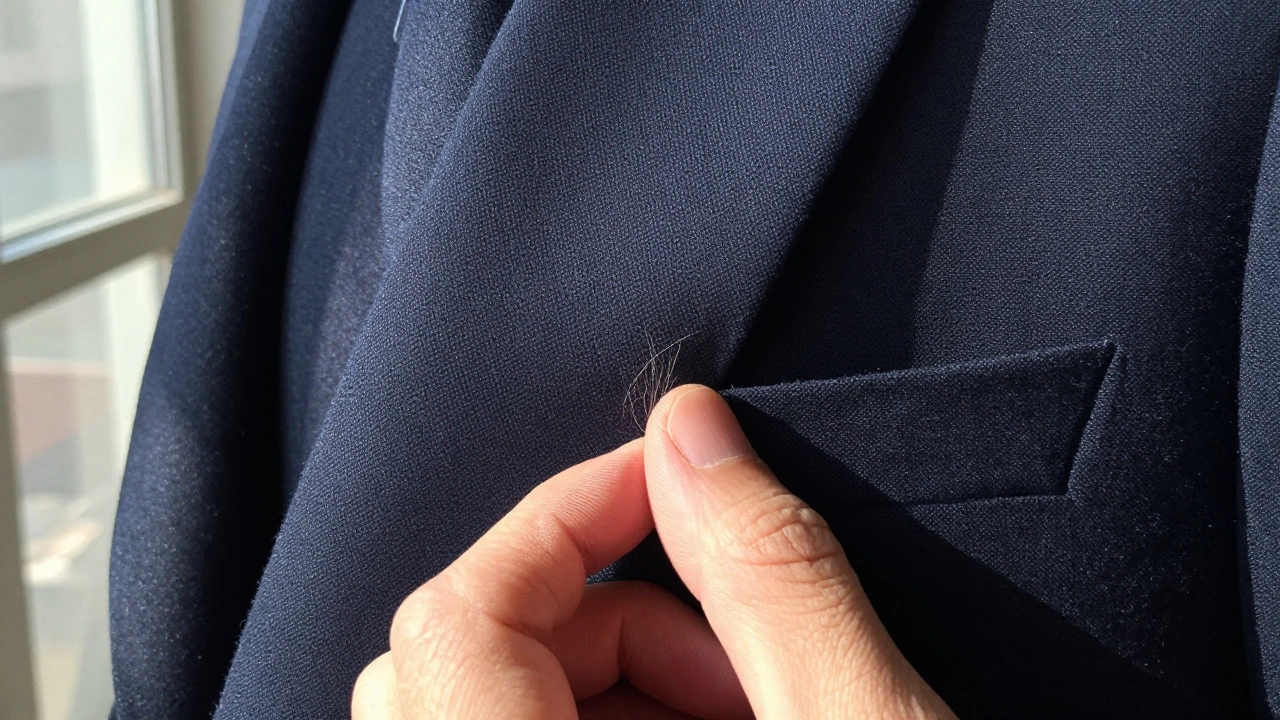
How Can You Tell If a Man's Suit Is Expensive?
Learn how to spot the signs of an expensive men's suit by examining fabric, construction, stitching, and fit. Discover what really separates luxury suits from cheap imitations.

What Is the Average Price for a Men's Suit?
The average price for a men's suit in 2025 is around $650, but the best value is found between $500-$700. Learn what affects suit cost, how to find the right fit, and where to buy without overspending.

How to Find a Suit That Looks Great on You
Learn step‑by‑step how to pick a men's suit that flatters your shape, from measuring to choosing the right cut, fabric, and where to buy.
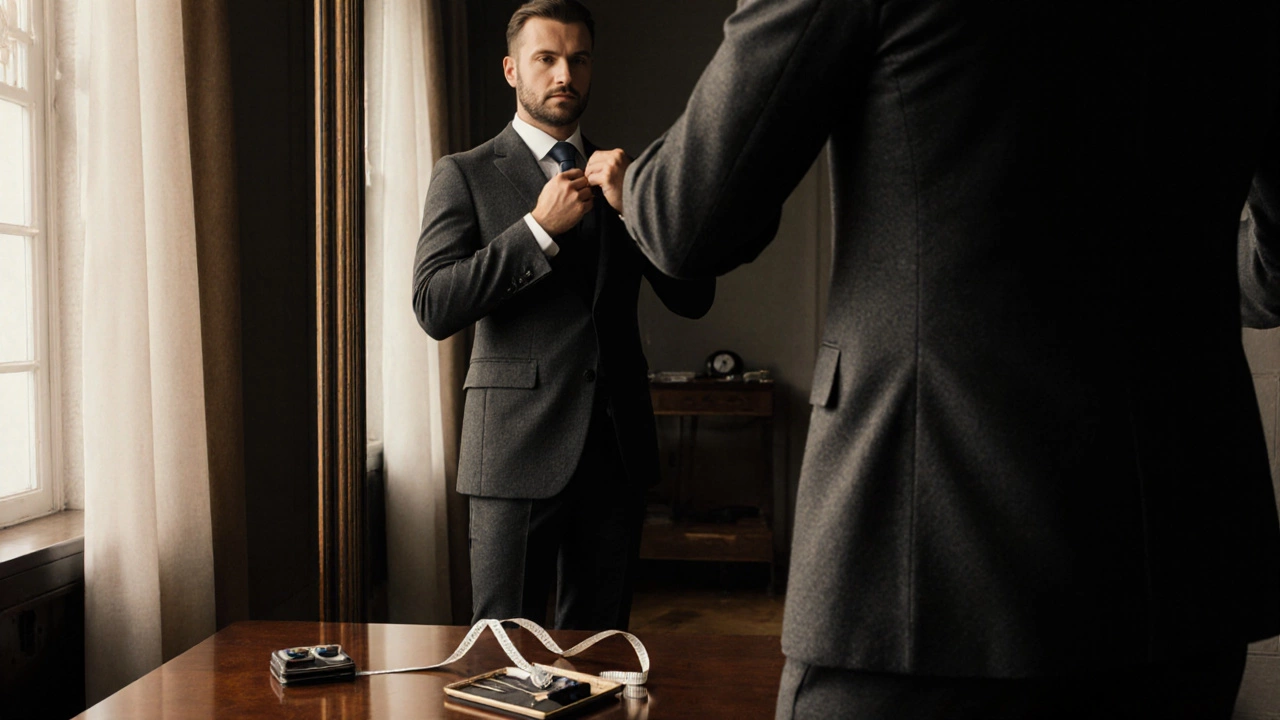
How to Look Expensive in a Suit: Proven Style Hacks
Learn how to make any suit look expensive with simple tips on fit, fabric, details, accessories, grooming, and budget‑friendly tricks for a luxurious appearance.

500 Dollar Suit vs 5000 Dollar Suit: Key Differences Every Man Should Know
Ever wondered why some suits cost $500 and others $5,000? This article unpacks the real differences in quality, fit, and value.

Slim-Fit Suits for Big Guys: What Really Works?
Big guys usually sidestep slim-fit suits, thinking they're made only for the skinny crowd. But with a few tricks, a larger build can actually look sharp in slimmer cuts. This article breaks down what works, what to avoid, and how to pull it off without discomfort or looking squeezed in. You'll learn practical tips, real fit advice, and bust a few myths about size and style. Get ready to rethink suit shopping for bigger bodies.

What Colour Suit is Most Attractive? Real Answers for Men
Ever wonder what color suit grabs the most attention? This article breaks down the science, psychology, and real-world experiences behind which suit shades stand out—and why. You’ll get practical examples and see what works for different occasions. Plus, you’ll know what to avoid if you want to look sharp and confident. Find out how a simple color choice can seriously boost your style game.

What Color Suit Makes You Look Skinnier? The Real Answer for Men
Curious which suit color actually helps you look slimmer? This article breaks down the best shades, how patterns play a role, and whether black truly beats navy. If you want to look leaner in a suit, you’ll find easy tips and smart choices backed by style know-how. Picking the right color and fit makes a bigger difference than you might think. Get ready to leave baggy, unflattering looks behind.

Spotting the Difference: Cheap vs. Expensive Men's Suits
Knowing how to differentiate between a cheap suit and an expensive one can elevate your style game. From examining the fabric to understanding stitching techniques, details matter. The lining, buttonholes, and even the suit's weight can speak volumes about its quality. This guide will help you spot key differences, ensuring you make informed decisions when investing in a suit.
